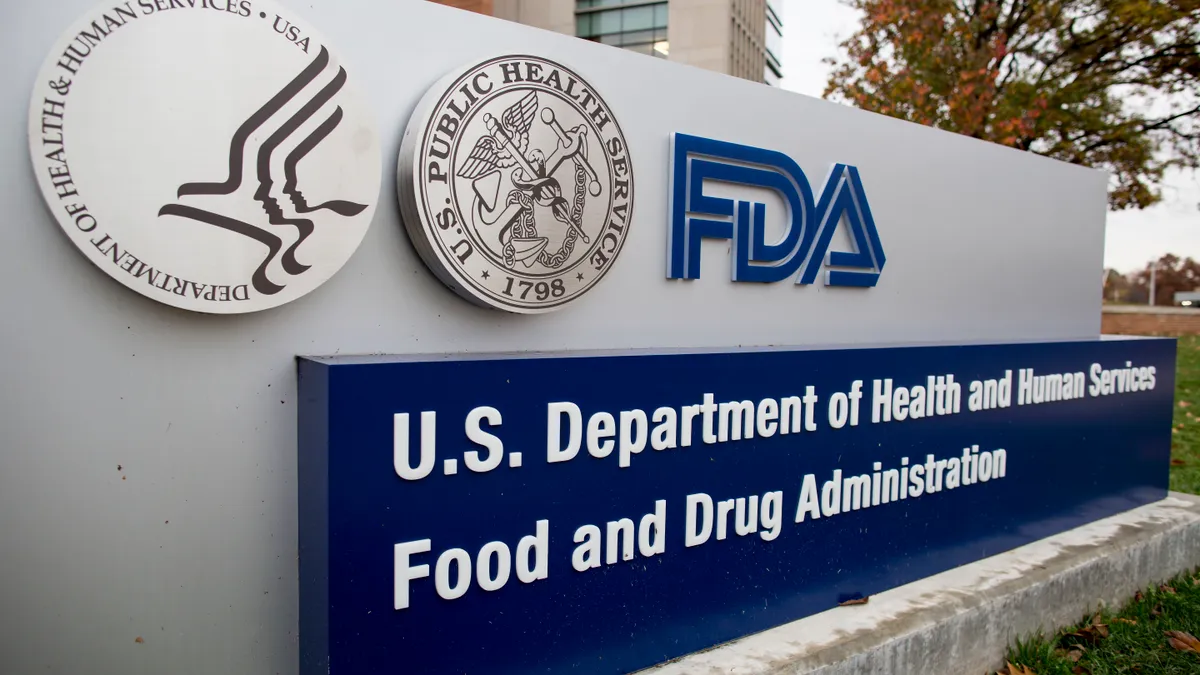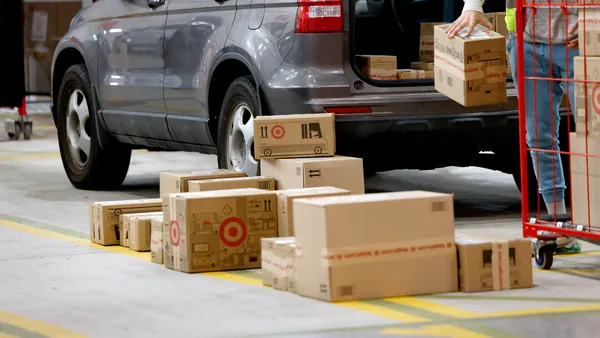Dive Brief:
- The FDA believes tech-enabled traceability; using smarter tools and approaches for prevention and outbreak response; taking advantage of new business models and retail modernization; and fostering, strengthening and supporting a culture of food safety will reduce foodborne illnesses, Commissioner Stephen Hahn announced in the agency's New Era of Smarter Food Safety Blueprint, released this week.
- The blueprint is a 10-year framework for food safety that builds on the Food Safety Modernization Act (FSMA). The plan describes how the government and industry will use technology to strengthen the FSMA and reduce the number of cases of foodborne illness.
- This new set of guidelines, which was delayed by four months due to the pandemic, revolves around four core principles requiring the use of digital tools including blockchain, end-to-end traceability, e-commerce, big data and predictive analytics to modernize food safety.
Dive Insight:
When FSMA became law in 2011, it brought sweeping change for the food industry. The law laid out seven rules encompassing a host of regulations that manufacturers were required to adopt on a rolling basis.
Recalls were the impetus behind the FSMA's implementation. However, in spite of its stringent rules that favored preventative approaches to food safety, foodborne illness has continued to plague farmers and manufacturers. Reports from 2017 indicated a spike in recalls. However, that year, Food Safety News reported that 43% of all FDA food recalls had been due to undeclared allergens rather than salmonella, E. coli or listeria.
Although it has rolled out slowly, nearly a decade later, the framework has been updated to incorporate a more digitally-minded, proactive approach.
One of the pilot initiatives the FDA is conducting is using artificial intelligence and machine learning to review imported foods at U.S. ports of entry. The AI will model historical shipment data to assist with product screening and determine if products meet U.S. food safety standards.
Food manufacturers and experts have been pushing for blockchain technology and interactive packaging for years in order to increase supply chain traceability and give consumers more insight into their products’ origins. While many major retailers, including Albertsons, and companies, such as Nestlé, have adopted these technologies, many are still behind in their use.
The FDA wants to use its plan to encourage more widespread digital progress by incentivizing the creation of solutions with low- and no-cost, enabling food producers of all sizes to participate. Additionally, the FDA said it will implement an internal digital technology system to track data elements from industry and regulatory partners.
The blueprint also addresses business models that didn't exist when FSMA was passed, but are common today. It includes setting several standards for food delivery safety, providing training for delivery personnel and creating educational materials for consumers about the safety of foods that are delivered. It also outlines plans to work with retailers, reviewing the effectiveness of current ways they try to prevent foodborne illness and working with them on effective facility design.
Last fall, the FDA unveiled a new dashboard to measure progress and track FSMA compliance. However, the data lacks granularity showing where recalls have occurred and for what reasons, making the dashboard more useful for government agencies and manufacturers than consumers. The blueprint cites plans to improve on this, exploring the use of different technology to get recall information to consumers and creating an app to be a resource for this information.
On a conference call following the release of the blueprint, Frank Yiannas, deputy commissioner for food policy and response, told reporters end-to-end product traceability for consumers is one of the major goals of the plan. He suggested the agency is looking at technologies that make it possible to scan a bag of lettuce and immediately know where it came from, or sending consumers a text message to let them know if something they purchased was the subject of a recall.
Many in the industry praised the blueprint. Food Industry Association (FMI) President and CEO Leslie Sarasin said in a statement that it was good for FDA to bring technology into the forefront with this plan.
>"Within the food industry, we continue to witness how rapidly business models are changing; any new frameworks should be broad in nature and be adaptable with evolving business practices," Sarasin said. "It’s critical that this new plan focuses on outcomes; leverages existing tools; increases communications with and among stakeholders; accounts for our variable resources and abilities; and provides uniformity that amplifies success."
American Frozen Food Institute President and CEO Alison Bodor also praised the plan.
“The frozen food industry is committed to continuing this comprehensive, risk-based approach to food safety," Bodor said in a written statement. "We look forward to continuing to work with FDA in its efforts to modernize food safety oversight.”













